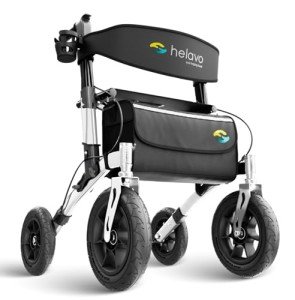10 Things We All Are Hating About Durable Walker

Choosing a Durable Walker: Your Guide to Enhanced Mobility and Independence
Navigating life's day-to-day challenges can end up being significantly tough as we age or face health concerns that limit mobility. For lots of, a durable walker can be a game-changer-- offering not only physical support but likewise increasing confidence. This post will explore the different kinds of durable walkers readily available, their crucial features, maintenance suggestions, and how to choose the right walker for your requirements.
What is a Durable Walker?
A durable walker is a mobility aid created to provide stability and support for people with limited movement abilities. Unlike basic walkers, durable walkers are built with robust materials and engineering created for regular usage, making them perfect for users who need a reliable aid for everyday activities.
Kinds Of Durable Walkers
When choosing a durable walker, it's important to understand the different types offered. Below is a table detailing typical kinds of durable walkers, their features, and perfect use cases.
| Kind of Walker | Features | Ideal For |
|---|---|---|
| Requirement Walker | Lightweight, non-wheeled design, adjustable height | People needing basic support |
| Wheeled Walker | Two front wheels, braking system | Users requiring additional mobility in the home |
| Heavy-Duty Walker | Strong frame for heavier weight capacity | Obese individuals or those with greater mobility requires |
| Rollator Walker | Four wheels, seat, hand brakes | Users trying to find resting choices throughout strolls |
| Folding Walker | Retractable design for easy transport | Individuals who take a trip frequently or have actually restricted storage |
| Knee Walker | Knee support for non-weight-bearing legs | People recuperating from foot or ankle injuries |
Key Features to Consider
When choosing a durable walker, several features need to be considered to ensure it meets your specific requirements. Below is a list of important features:
- Weight Capacity: Ensure the walker can support the user's weight safely.
- Height Adjustability: Look for walkers with adjustable heights to supply correct ergonomic support.
- Product: Aluminum walkers are lightweight and durable, while steel walkers use included toughness.
- Wheels: Consider walkers with wheels for easier maneuverability if the user is mobile enough.
- Grip Handles: Ergonomically designed grip manages enhance convenience and stability.
- Storage Options: Many walkers included attached seats or storage bags for convenience.
- Braking System: Essential for wheeled walkers to guarantee stability during use.
Benefits of Using a Durable Walker
Investing in a durable walker includes many advantages. Here are a few:
- Increased Stability: The main function of a walker is to supply support and stability.
- Boosted Confidence: Using a walker can assist users feel more secure in moving around their environment.
- Improved Mobility: Walkers can help people keep mobility and self-reliance.
- Minimized Fatigue: A walker relieves tension on joints and muscles during motion.
- Enhanced Posture: They often promote much better posture and alignment, which can reduce pain in the back.
How to Maintain Your Durable Walker
To make sure the longevity and security of a durable walker, routine upkeep is important. Here are some ideas:
- Check for Damage: Inspect for any fractures or loose parts routinely.
- Clean Regularly: Wipe down handles and frame with a mild cleaner to keep it hygienic.
- Oil Wheels: For wheeled walkers, use lubricant to avoid squeaking and guarantee smooth motion.
- Height Adjustments: Periodically check if the height is still suitable and adjust appropriately.
- Tighten up Screws: Regularly check screws and bolts to ensure they are tight and secure.
Regularly Asked Questions (FAQs)
1. How do I understand which type of walker is best for me?
Choosing the best walker depends on your specific mobility needs, weight capability, and convenience choices. Consulting with a healthcare professional can provide individualized insights.
2. Can I utilize a walker on uneven surface areas?
While many resilience walkers are developed for numerous surfaces, it's advisable to use them on flat surfaces when possible. Look for walkers with bigger wheels for much better performance on irregular surfaces.
3. Exist walker's covered by insurance coverage?
Oftentimes, Medicare and other insurance coverage plans cover durable walkers with a doctor's prescription. Contact your insurance provider for specific details.
4. Can walkers be utilized outdoors?
Numerous durable walkers are ideal for outdoor usage. However, choosing Reliable Walker with larger wheels and good suspension will improve the experience on uneven terrains like lawn or gravel.
5. How much weight can a heavy-duty walker support?
Heavy-duty walkers normally support in between 300 to 600 pounds, depending on the model. Constantly inspect the manufacturer's requirements.
A durable walker can considerably improve the quality of life for individuals with mobility challenges. By comprehending the various types, features, and upkeep standards, users can make an informed choice that best meets their needs. With the best walker, people can regain mobility, independence, and confidence in their lives. As constantly, seeking advice from a health care professional for customized recommendations is motivated to guarantee the very best fit for mobility requirements.

